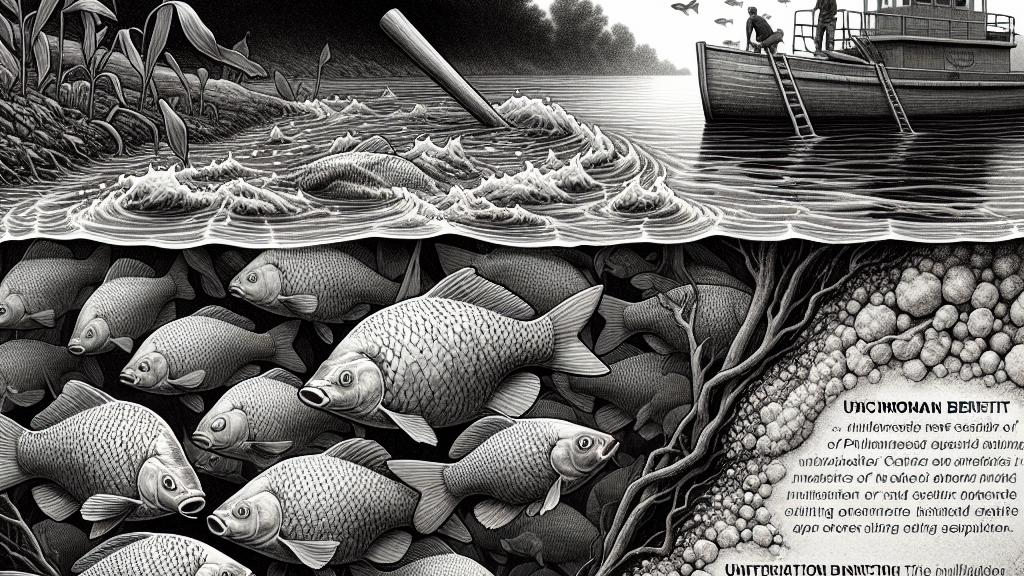Impact of Water Pollution on Invasive Carp Spread
Overview
- Chicago-area pollution surprisingly hampers the spread of invasive silver carp.
- Young silver carp display reduced activity in contaminated waters, which alters their survival strategy.
- Identifying harmful substances may lead to groundbreaking methods for invasive species management.

The Unexpected Consequence of Pollution
Imagine this: the very pollutants that threaten our waterways are unwittingly creating a barrier against one of the most invasive fish species in North America—the silver carp. A riveting study from the University of Illinois has brought to light how pollution levels in the Illinois River are actually slowing down the relentless march of these fish towards Lake Michigan. Researchers observed that when young silver carp were placed in contaminated water, they instinctively became lethargic, so much so that their exploration and movement dwindled. This behavior starkly contrasts with their typical gregariousness seen in cleaner waters, illustrating a fascinating adaptation to environmental stressors.
An Intriguing Survival Strategy Revealed
Delving deeper, co-author Professor Cory Suski unveils that this change in behavior is more than just instinct; it's about energy conservation. In polluted waters, silver carp must work harder—and expend more energy—just to survive. This leads them to adopt a 'stay put' strategy, akin to hunkering down during a storm. The study highlights several suspected pollutants, such as pharmaceuticals and industrial byproducts, suggesting that these contaminants are compounding the challenges the carp face. Picture a fish, typically swift and agile, now navigating a murky, toxic labyrinth, forced to make tough decisions about safety versus hunger. This dynamic not only affects individual fish but raises broader questions about the ecological impact of pollution on species behaviors.
Toward Innovative Management Solutions
Now, for the exciting part: what do these findings mean for conservation efforts? While we certainly do not want to glorify pollution, understanding which specific contaminants deter silver carp could lead to ingenious new strategies for managing their populations. Imagine researchers discovering that certain pollutants effectively repel these invasive fish, opening doors to innovative management techniques, such as tailored removal efforts or environmentally friendly barriers. This approach could serve as a vital tool in preserving the native fish populations of the Great Lakes while also benefiting local economies that rely on fishing and recreation. As we navigate the complexities of invasive species and pollution, the integration of this research into conservation practices could transform current ecological strategies, turning challenges into opportunities for a healthier ecosystem.

Loading...